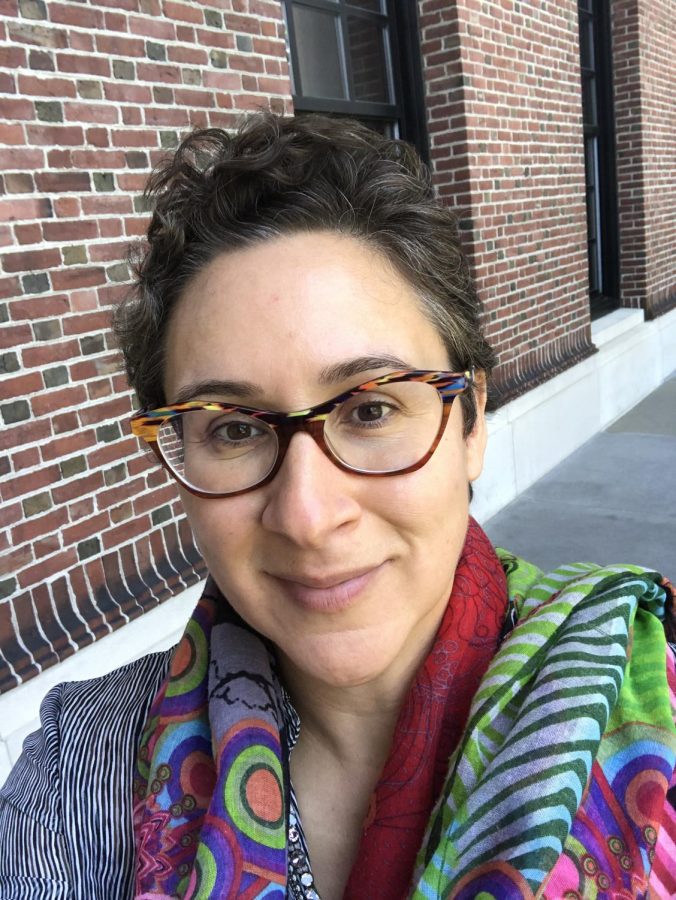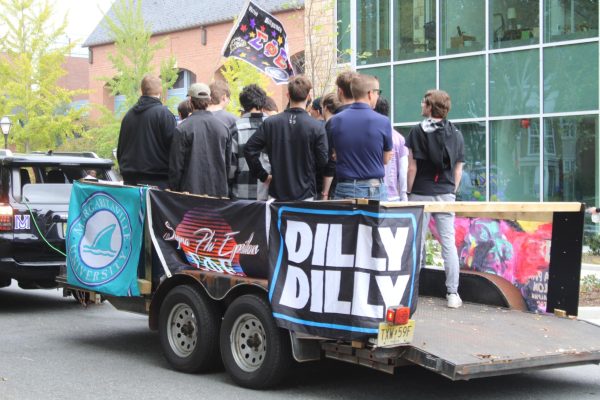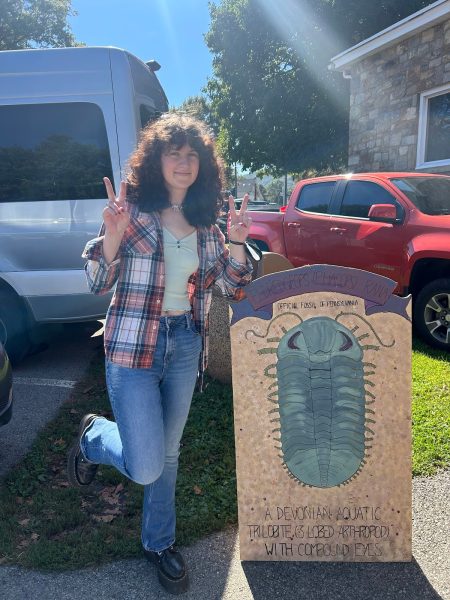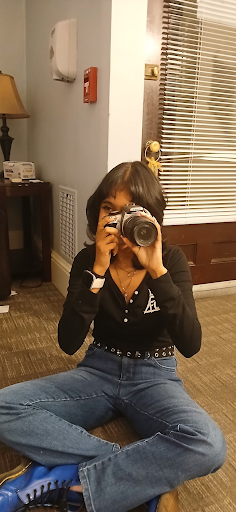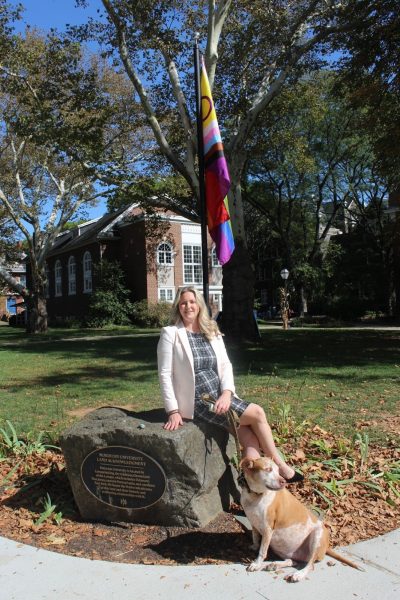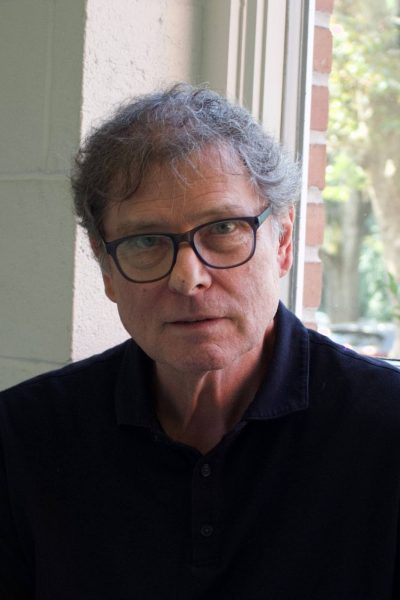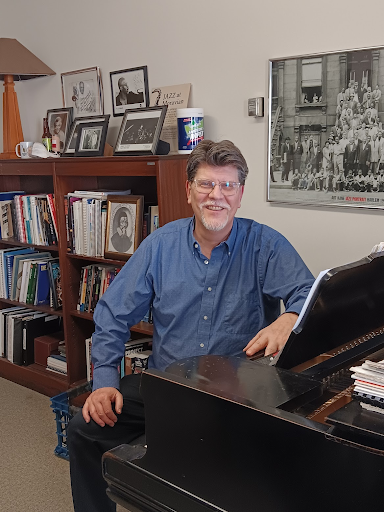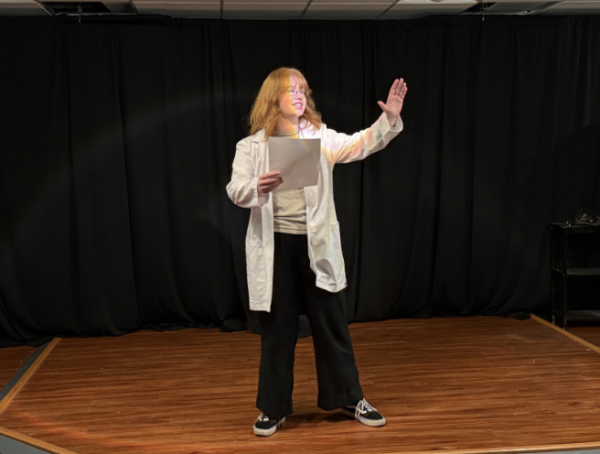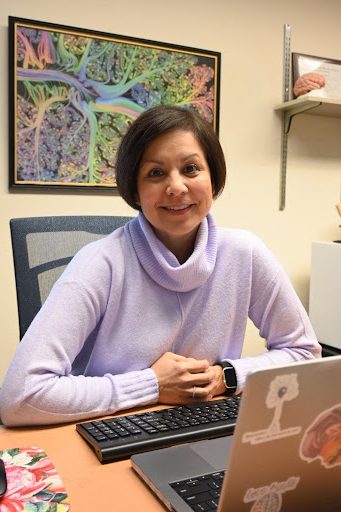Professor Spotlight: Khristina Haddad
Khristina Haddad is an associate professor and department chair of the political science department at Moravian College. She obtained her B.A. from Reed College, M.A. from McGill University, and Ph.D. from the University of Michigan.
What inspired you to go into your field of study?
During the Cold War, my father worked for the Department of Defense School System in what was then West Germany. I grew up in an intensely political environment and was socialized into political participation and education as a matter of urgency in my K-13 experience in German schools. Our teachers taught us that reading a serious newspaper daily was a necessity bordering on a duty in a democracy. Nonsensical statements about politics were confronted head on and immediately challenged and corrected. The Green Party made it into parliament for the first time when I was ten in 1980. This was a pivotal moment in my political awareness. Recycling and environmentalism took off. Public transportation was supplemented by a discounted taxi fare to make sure that women made it home safely at night. The peace movement brought thousands into the streets to protest the arms race and the threat of nuclear war. I traveled extensively in Europe and beyond while I was growing up and always had a sense of how different life could be under different political conditions. Speaking English at home and German everywhere else, I had a strong sense of cultural difference also given the Lebanese and Anglo-American sides of my family. There was a collective imperative to face the past of the Holocaust. My father took me to Dachau to see the concentration camp several times when I was younger, and when I was an older teen, I took fellow students there as I was student body president and involved in political matters in high school. I have never forgotten Dachau, and my work as a political science educator draws deep motivation from the importance of preventing oppression, genocide, and human suffering. I participated in many demonstrations and moved between the German spaces of my life in Stuttgart and the U.S. military bases where my father worked. I had access to the international press and to U.S. news as a teenager and became keenly aware of the perspectival and power-charged dimensions of politics. My first subscription to The Economist was a family gift in my early teens.
What are you currently working on?
The place of handwriting in political theory, both historical and contemporary. My sabbatical research focuses on historical commonplace books (handwritten intellectual journals), the place of handwriting in the creation of political theory, and the question of how to teach students how to study political theory slowly and thoroughly in a speedy digital age. I am interested in reflective pedagogies that create unpressured but disciplined creative and critical spaces for student thought. What’s at stake in this is how to teach political thought in a meaningful way so that students both can become literate in this tradition and also cultivate lifelong intellectual habits that will serve them well. It’s one thing to know about something and another thing to have integrated and developed your knowledge in a way in which it can transform your life.
What do you think is the most recent important development in your field of work?
Without a doubt, the most important change in political science over the past twenty-five years is the existence of a more diverse community of political science students and faculty and the resulting better study and representation of political phenomena in the United States. When I started studying political science in the late 1980s, the field was clearly masculine and white. Issues of sex, gender, and class were considered marginal concerns not deemed worthy of too much attention except by exceptional scholars. There used to always be a “politics and women” week at the very end of syllabi, and often we never made it to that lesson for one reason or another. All that has changed for the better!
What job would you have if you couldn’t be a professor, regardless of salary and job outcome? Why?
Probably an artist or graphic designer. The visual can be powerful beyond simple printed words at times.
What do you know now that you wished you knew when you were in college?
There was never much, if any, alcohol in my family. Drugs were a non-issue. I felt unprepared to understand the severity of alcoholism and drug use in the United States. Having grown up in a country where everyone had health insurance, paid vacation, and access to high quality public goods, it took me a long time to understand the precariousness of life for many in the United States.
What is your biggest student pet peeve?
I don’t have a student pet peeve — just have high standards for meaningful presence and participation. I like to see well-prepared students who are leaning in and giving class their full attention. My pet peeve used to be phones in class, but the pandemic has shifted my concerns.
What was the last streaming show that you binge-watched or the last good book that you read?
Because I am a mother, I am fully up to date on The Mandalorian and have a great love for the Yoda child.
My recently read novels include: Chimamanda Ngozi Adichie, Americanah and Half of a Yellow Sun; Akwaeke Emezi, Freshwater; Tony Morrison, The Bluest Eye; and Barbara Kingsolver, Unsheltered. The most striking of these is Emezi’s Freshwater, with its intimate and dangerous dissolution of the subject and narrative order as well. I started reading that book as one person, an old self, and came out another: less innocent, more honest, better equipped to live with my own complexity, and more seriously concerned about the internal and external dangers that women still face in their lives.
What is something interesting about you that most people don’t know?
In the mid-90s, after the end of the former Soviet Union and during transition, I taught political science in English, German, and also a bit in Russian at the University of Latvia in Riga.
What’s your spirit animal and why?
Ha! Personally, I am much too focused on the experience of embodiment to have a spirit animal. As a feminist political theorist, I think about binaries of all kinds as important points for study and possibly also contestation. The human-animal binary is one of those assumptions worth taking a closer look at for the sake of a broader and deeper conception of ethics and sustainability.
If you could collaborate with one artist, dead or alive, who would it be? Why?
I am a great fan of the work of Moravian College art professor Angela Fraleigh. Her paintings draw me in. In her work, she gets at what I mentioned above about the experience and embodiment. Having an artist of the stature of Professor Fraleigh at Moravian is very important to me. I had the pleasure of working with her on the Honors project of Jillian McLuhan last year and am always compelled by the conceptual and political dimensions of her approach to art.


